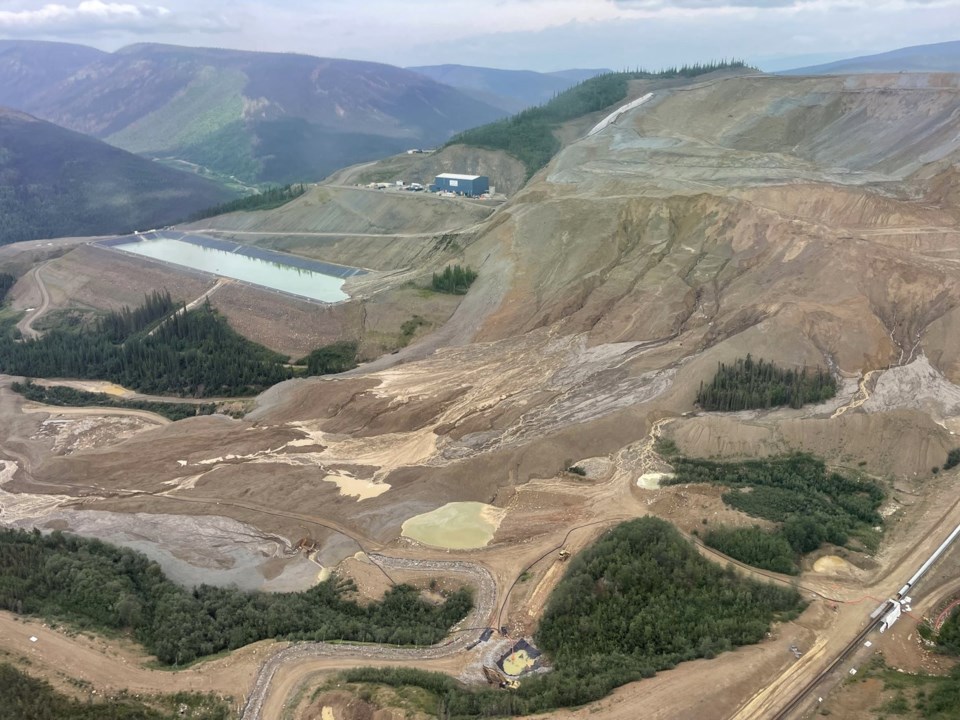WHITEHORSE — The Yukon government hopes mining can eventually restart at the site of the Eagle Gold mine disaster, despite calls from the Na-Cho Nyak Dun First Nation to halt mining activity on its traditional territory.
Yukon Justice Minister Tracy-Anne McPhee said Friday that the mine site could still be viable after environmental mitigation work is completed, though the mine's owner, Victoria Gold, was ordered into receivership this week.
An Ontario court appointed PricewaterhouseCoopers Inc. as receiver over the company after the Yukon government "lost confidence" in Victoria Gold's ability to handle clean-up efforts, court documents say.
McPhee said the receiver's work "will be to discover and assess the assets of Victoria Gold, wherever they may be held, and determine how those funds can be used to mitigate the site."
She said mining remains an important part of Yukon's economy, but "it must be done safely."
The minister said public safety and environmental concerns were not "being properly addressed by the company" after the mine's heap leach pad failed, causing a torrent of cyanide-contaminated material to escape the mine site in June.
The Na-Cho Nyak Dun First Nation, whose territory the mine is located on, has since called for a moratorium on mining activity on its traditional territory, and also sought to have a receiver appointed over the company.
In an affidavit filed in Yukon Supreme Court Tuesday, the nation's director of lands and resources Ellie Marcotte said it is "uniquely affected" because 44 per cent of mining claims and 74 per cent of mining leases in Yukon are on Na-Cho Nyak Dun territory.
“For well over a century, (Na-Cho Nyak Dun) citizens have had to deal with the effects of the poisoned waters and lands that miners have repeatedly left behind," Marcotte's affidavit says. "The impacts of mining have had a catastrophic effect on (Na-Cho Nyak Dun) culture, well-being, and way of life.”
Marcotte's affidavit outlines how several mining accidents have left the federal and Yukon governments, and ultimately taxpayers, on the hook because "the security that the mining companies have posted for reclamation and closure costs is often inadequate."
“History shows that miners almost always declare bankruptcy and walk away before the mines are reclaimed and closed," Marcotte's affidavit says. “The pattern of mine reclamation ultimately being left to the government has happened time and time again in the Yukon.”
She lists several mines that have been abandoned in the territory, including Faro, Keno Hill, Mount Nansen, Minto and Wolverine.
“The cleaning up of these mines inevitably takes the government many years or decades, if it happens at all," Marcotte's affidavit states.
The Faro mine was abandoned in 1998, and now falls under the federal Northern Contaminated Sites Program after the project left behind "70 million tonnes of tailings and 320 million tonnes of waste rock."
The federal government said the site "is one of the most complex abandoned mine clean-up projects in Canada," and a decision on a remediation plan is expected next year.
McPhee, who is also Yukon's attorney general, said Friday that the Yukon government has not yet accessed security bonds put up by the company in connection with the mine.
She said it "is an option going forward to explore whether or not the security should be used and can be used in these circumstances."
McPhee and other government officials held a news conference Friday to provide an update on what has been happening at the site now that Victoria Gold is in court-ordered receivership.
She said the receivership process provides a "pathway" to dig into the company's finances and assets to be used to cover the environmental mitigation work, but the Yukon government is advancing funds to cover "urgent work" in the meantime.
"The company's own assets and funds will be used first by the receiver," she said. "Once those have been exhausted, the funds advanced by the Yukon government will be a debt owed to government."
McPhee said the decision to go to court to appoint a receiver to assume the company's work was not meant to put the company out of business, and the resignation of Victoria Gold's board of directors was made "on their own."
This report by The Canadian Press was first published Aug. 16, 2024.
The Canadian Press



